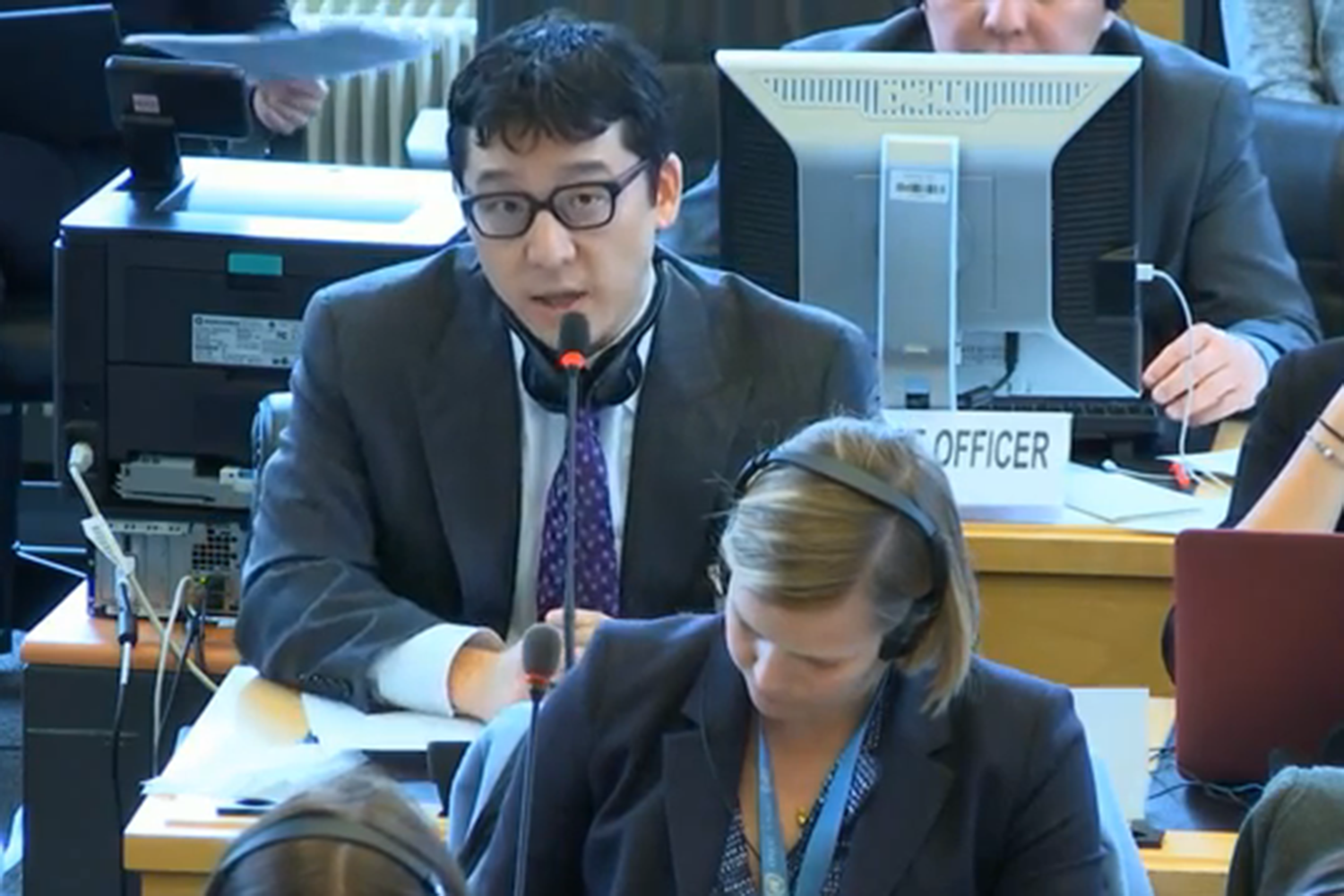UConn Expertise Helps Strengthen United Nations’ Global Initiatives on Responsible Business Conduct
When a United Nations committee met last month in Geneva, Switzerland, to prepare new guidance on business and human rights, six UConn faculty offered suggestions to bolster the international treaty.
“The scope of this project is enormous and its results will have ramifications for generations to come,” said Stephen Park, a professor of business law and the director of the Business and Human Rights Initiative at UConn.
“It was a privilege to apply our collective knowledge and expertise and to share ideas about fostering business while promoting human rights,” he said.
Among the recommendations put forth by Park and his colleagues were enhancing protection of children and migrant workers, safeguarding the rights of the disabled, and addressing harms caused by climate change.
Park, who traveled to Geneva for the Feb. 21 discussions, presented their recommendations to the U.N. Committee on Economic, Social and Cultural Rights, which is developing guidance on legal principles and best practices in business and human rights. Other participants included representatives from a vast number of governments, business, civil society, trade unions, academia, and other organizations from throughout the world. Their input will be used to strengthen the International Covenant on Economic, Social and Cultural Rights.
Park said the purpose of the consultations was to ensure that the treaty addresses the most important ways that governments should and must minimize the adverse impacts of business activities, and also to facilitate greater awareness among governments, businesses, and civil society about ways that they can work together to advance respect for human rights.
“The range of different issues was fascinating,” Park said. “Among them were questions about the impact of international trade and investment agreements, government procurement practices, privatization of healthcare and education, and the responsibility of governments for the foreign conduct of domestically based companies.”
“There were also questions about the relationship between the Covenant and other human rights frameworks, such as the UN Guiding Principles on Business and Human Rights,” he added. “These are complicated and often controversial matters of law and public policy.”
Park collaborated with UConn human rights faculty, including: Audrey Chapman, professor of medical ethics and humanities; Shareen Hertel, associate professor of political science and human rights and co-director of the Economic and Social Rights Research Group; Molly Land, professor of law and human rights and associate director of the Human Rights Institute; Kathryn Libal, associate professor of social work and human rights and director of the Human Rights Institute, and Glenn Mitoma, assistant professor of education and human rights and director of the Thomas J. Dodd Research Center. The team worked together over the past winter break to craft and submit written comments.
Since 2013, the School of Business has collaborated with the Dodd Center and the Human Rights Institute on conferences to promote social responsibility and human rights in business and discuss obstacles to their implementation.
Last year, the Initiative received a $265,000 research grant from the University to explore ways to protect and promote human rights in the business world through conferences and workshops, student and public engagement and support for research.
“We are leveraging the University’s commitment to ethical business practices and corporate social responsibility,” Park said. “We felt it was important to take this wealth of knowledge and expertise about business, human rights and social responsibility to a truly international forum that included representatives from government to grassroots organizations. As scholars and teachers, we want to find ways to engage internationally as well as closer to home.”



